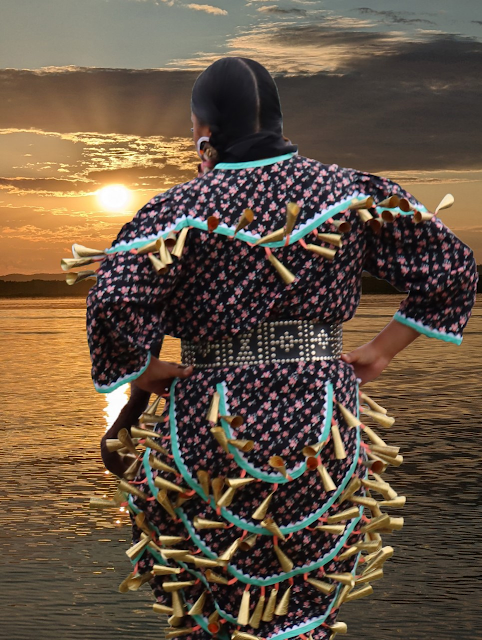Provided by StrongHearts Native Helpline
How Advocates Help
In the field of domestic and sexual violence, an advocate’s work bridges the gap between a victim-survivor and service providers. They help their contacts recognize abuse, assess the risk of danger and to plan for safety. They offer peer support, crisis intervention and assistance locating resources. Ultimately, the work of an advocate can be lifesaving.
The Impact and Vicarious Trauma
Advocacy may sound like a rewarding job because saving lives is undeniably an honorable profession. That may be true, but the fact of the matter is the work of an advocate is steeped in trauma. Those who work in the field may even be victim-survivors and their work can be triggering. Nonetheless, advocates are committed to their work. Despite the risk of having to relive their own trauma — the desire to help others — is as important to them as it is to their contacts.
Vicarious Trauma is work-related trauma exposure. It includes secondary stress, compassion fatigue and all the negative impacts of work-related trauma exposure. It is often experienced by people in the fields of child welfare and protection or domestic and sexual violence. It can leave advocates feeling overwhelmed with worry but hopeful they did enough to help.
Resources, Support and Safety
When it comes to Native Americans and Alaska Natives impacted by domestic and sexual violence, advocates are faced with resource disparities beyond compare. In StrongHearts’ database, there are 272 Native-centered service providers compared to more than 3,500 non-Native service providers. The picture is even bleaker when looking at shelters, where there are only 59 tribal shelters compared to more than 1,500 non-tribal shelters.
When advocates realize that they are limited by available resources, they develop an even stronger desire to provide emotional support and lifesaving safety planning. In many cases, it’s all they can do. It’s what our relatives have done for centuries.
Resilience, Transformation, Satisfaction
By observing resilience in their clients and helping them to overcome challenges, advocates themselves can gain vicarious resilience, vicarious transformation and compassion satisfaction.
Vicarious Resilience: Survivors are hearty and their ability to move forward and beyond their experience can encourage resilience in the work of advocacy.
Vicarious Transformation is about the engagement with survivors, what we learn and what we get out of it, and how it can transform us.
Compassion Satisfaction is about feeling good in the work of advocacy. It happens when advocates are able to help people efficiently and effectively. It may involve a policy change in the work environment that came as a result of an advocate's suggestion.
The benefits of vicarious trauma are a sense of strength and resilience gained only through contact with survivors, what we learn through them, and the difference made not to one, but everyone impacted by domestic and sexual violence.
Culture Is Key
“Trauma resilience is a common bond between Native peoples,” said StrongHearts Chief Executive Officer Lori Jump (Sault Ste. Marie Tribe of Chippewa Indians). “Our advocates have the shared goal to eradicate violence and to help our people find a path toward healing. Our people have come this far because it is our way not to leave anyone behind. Culture is key to ensuring a better future for the next generation.”
About StrongHearts Native Helpline
StrongHearts Native Helpline is a 24/7/365 culturally-appropriate domestic, dating and sexual violence helpline for Native Americans, available by calling or texting 1-844-762-8483 or clicking on the chat icon at strongheartshelpline.org.
Source: “What Is Vicarious Trauma,” Michigan Victim Advocacy Network. https://mivan.org/paper-to-practice/#vicarious






















No comments:
Post a Comment
Please: Share your reaction, your thoughts, and your opinions. Be passionate, be unapologetic. Offensive remarks will not be published. We are getting more and more spam. Comments will be monitored.
Use the comment form at the bottom of this website which is private and sent direct to Trace.